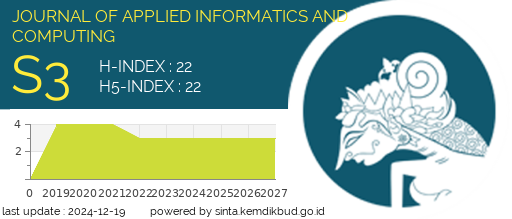Penggunaan Teknologi Informasi dan Komunikasi (TIK) dalam Knowledge Sharing pada PT. Indonesia Villa Jaya Batam
DOI:
https://doi.org/10.30871/jaic.v3i2.1688Keywords:
Knowledge Management, Knowledge Sharing, Information and Communication TechnologyAbstract
Knowledge management has been applied in various organizations. The implementation of knowledge management will not work if there is no process of knowledge sharing. Knowledge sharing is the key to an organization's success. To facilitate knowledge sharing, it can use information assistance. The existence of information technology can be an enabler in the process of knowledge sharing. PT. Indonesia Villa Jaya is a company of production field. This company is one of the companies that already did knowledge sharing activities. Knowledge sharing activities include routine meetings, training, watching together, and many other activities. Knowledge sharing activities in this company are also inseparable from the role of information technology. However, this time, the use of information technology in this company has not been maximized that there are still many complaints from employees regarding the use of information technology for knowledge sharing. This study aims to determine the description of the use of information technology for knowledge sharing. The information technology that will be discussed from this research are ICT tools, ICT infrastructure, and ICT know-how. This is a quantitative research. The population of this research is the employees of PT. Indonesia Villa Jaya, with questionnaire collection methods and census sampling techniques, and data analysis techniques with descriptive analysis. The results of this study indicate that the use of information technology for knowledge sharing at PT Indonesia Villa Jaya is at a good level. ICT Infrastructure has the highest value for information technology variables that support knowledge sharing.
Downloads
References
S. Raharso, Knowledge based organization: kunci untuk membuat kompetisi menjadi tidak relevan. Jakarta: Manajemen Usahawan Indonesia, 2009.
L. H. Ibrahim, "The Roles Of Learning in Stimulating Knowledge Sharing at SMES," Procedia-Social Behav. Sci., pp. 230"“237, 2015.
Halawi;McCarthy;Aronson, "Knowledge Management and The Competitive Strategy of the firm," J. Learn. Organ., pp. 384"“397, 2006.
Sanchez, "Knowledge Creating and Sharing Corporate Culture Framework," Procedia Soc. Behav. Sci., vol. 74, pp. 388"“397, 2013.
S. Wang and R. A. Noe, "Human Resource Management Review Knowledge sharing : A review and directions for future research," Hum. Resour. Manag. Rev., vol. 20, no. 2, pp. 115"“131, 2010.
W. & Snyder, "The organizational Frontier," in Community of Practice, MA: Harvard Business School Press, 2001.
S. Rowland, "Knowledge Management in a public organization : a study on the relationship between organization elements and the performance of knowledge transfer," J. Knowl. Manag., 2004.
Sugiyono, "Metodologi Penelitian Kuantitatif, Kualitatif, dan R&D," Bandung: Alfabeta, 2013.
Riduan, "Pengantar Statistik Untuk Penelitian: Pendidikan, Sosial, Ekonomi, Komunikasi, dan Bisnis," Bandung: Alfabeta, 2008.
Furkonudin, "Evaluasi Kualitas Layanan Website E-Commerce BliBli.com menggunakan Merode Webqual 4.0 Terhadap Keputusan Pembelian Online," Yogyakarta: STMIK AMIKOM, 2016.
Downloads
Published
How to Cite
Issue
Section
License
Authors who publish with this journal agree to the following terms:
- Authors retain copyright and grant the journal right of first publication with the work simultaneously licensed under a Creative Commons Attribution License (Attribution-ShareAlike 4.0 International (CC BY-SA 4.0) ) that allows others to share the work with an acknowledgement of the work's authorship and initial publication in this journal.
- Authors are able to enter into separate, additional contractual arrangements for the non-exclusive distribution of the journal's published version of the work (e.g., post it to an institutional repository or publish it in a book), with an acknowledgement of its initial publication in this journal.
- Authors are permitted and encouraged to post their work online (e.g., in institutional repositories or on their website) prior to and during the submission process, as it can lead to productive exchanges, as well as earlier and greater citation of published work (See The Effect of Open Access).











